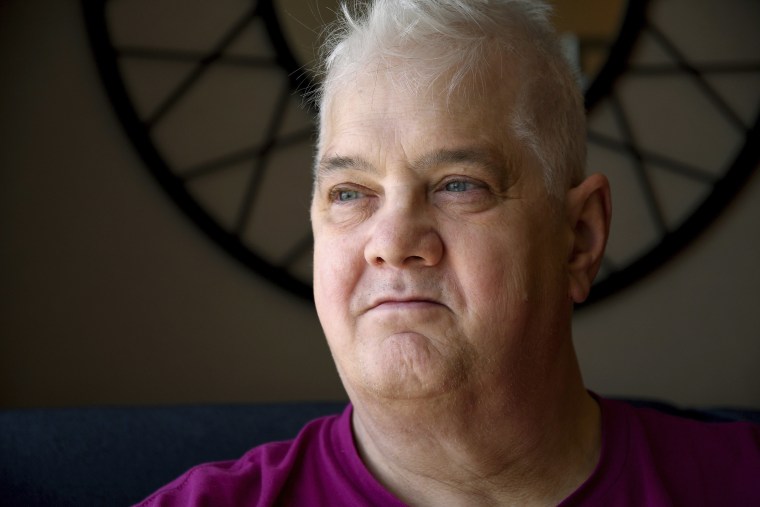Last Wednesday morning, I almost broke down and cried.
The day started when Paul Castillo, my lawyer at Lambda Legal, contacted me to say my new, accurate U.S. passport had been delivered.
I was staying at a hotel in downtown Fort Collins, Colorado, with my colleague, the executive director of the Intersex Campaign for Equality, Hida Viloria, because we were celebrating Intersex Awareness Day. So, Hida and I hopped in a car, went to pick up the delivery from my apartment and went back to the hotel. As Hida filmed as best as possible with my phone camera, I opened the envelope and pulled out my new passport.
As Hida filmed as best they could with my phone camera, I opened the envelope and pulled out my new passport.
And I felt the tears coming.
To understand why I almost cried, you first have to understand that this was a moment many years in the making. In fact, I had been asking the U.S. Passport Agency for an accurate passport since September 2014. Importantly, I was not asking for a special or unique passport just for me; I was asking for an accurate passport with a gender marker that reflected who I am. At the very least, I was looking for official paperwork that did not force me to identify as someone I am not.
And I was not alone in this fight — I was joined by intersex and nonbinary folks across the country.
A U.S. passport is an essential identity document, as important as birth certificates and state ID cards and drivers’ licenses. And, in dozens of states, intersex, nonbinary and transgender residents are able to change the gender designations on those documents so that they are accurate. But the U.S. State Department has long insisted that intersex and nonbinary citizens choose “M” for male or “F” for female on their passport applications.
I refused to do that — because I am neither.
For centuries, society has ignored and even hidden the existence of intersex people, which has led to so much isolation and pain — both from social erasure and from forced surgeries that physically erase who we are. I went through this myself, and after years of pain, I felt obliged to do something for my community. I decided that forcing the government to recognize that we exist, on the basis of sex, was a necessary step to end this agony.
And so, six years ago, Lambda Legal filed a federal lawsuit in Colorado on my behalf. The court ruled in my favor on Nov. 22, 2016, and, after a second hearing, ruled in my favor again on Sept. 19, 2018. The State Department then appealed to the 10th U.S. Circuit Court, which in a May 2020 decision, required the State Department to reconsider its refusal to issue me an accurate passport. Finally, this past June, the State Department announced it will begin offering an “X” gender marker option on U.S. passport applications. And mine was officially delivered on Oct. 27.
I am thrilled that I now have an accurate U.S. passport. I am even more thrilled that other intersex and nonbinary U.S. citizens are now also able to apply for their accurate passports. It is way past time for us to be fully recognized for who we are. It’s more than a piece of paper — it’s an official acknowledgement of a community that for far too long has been kept in the dark.

